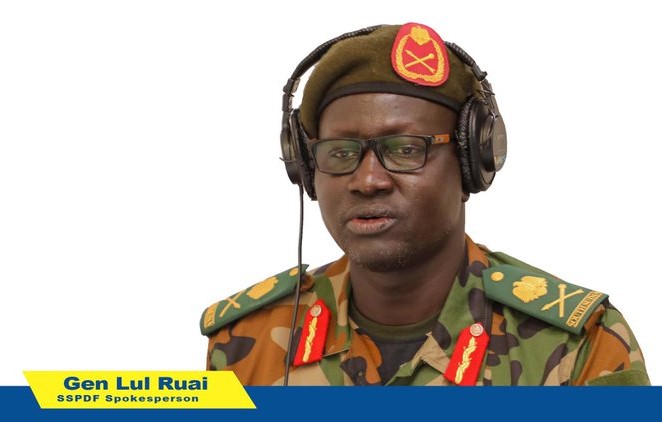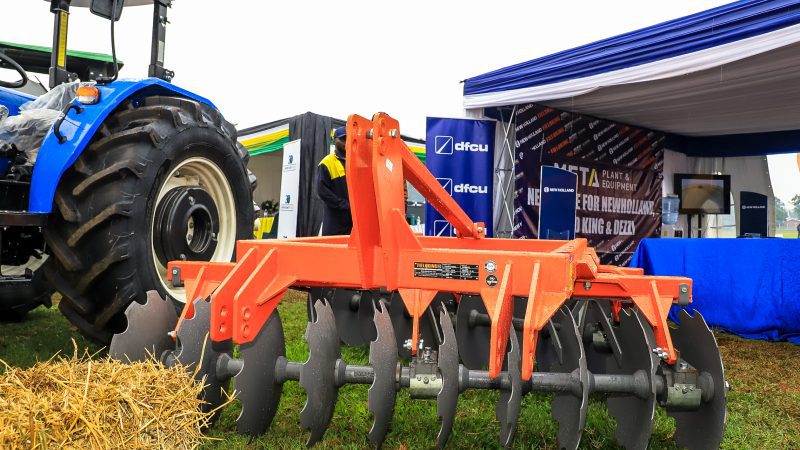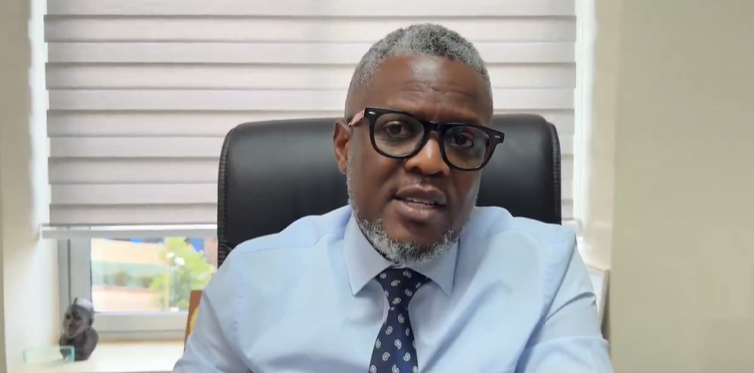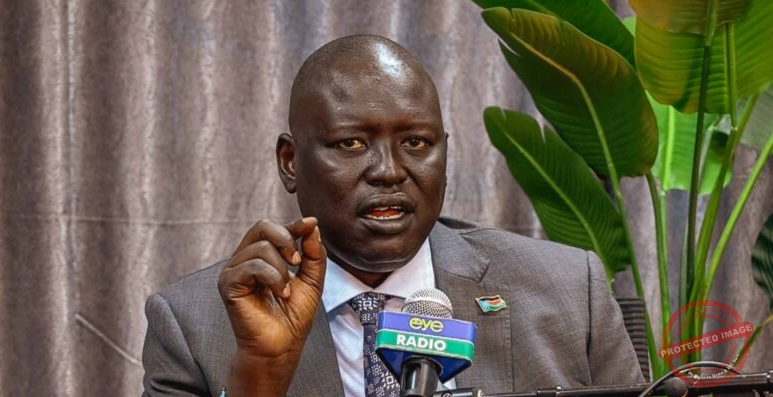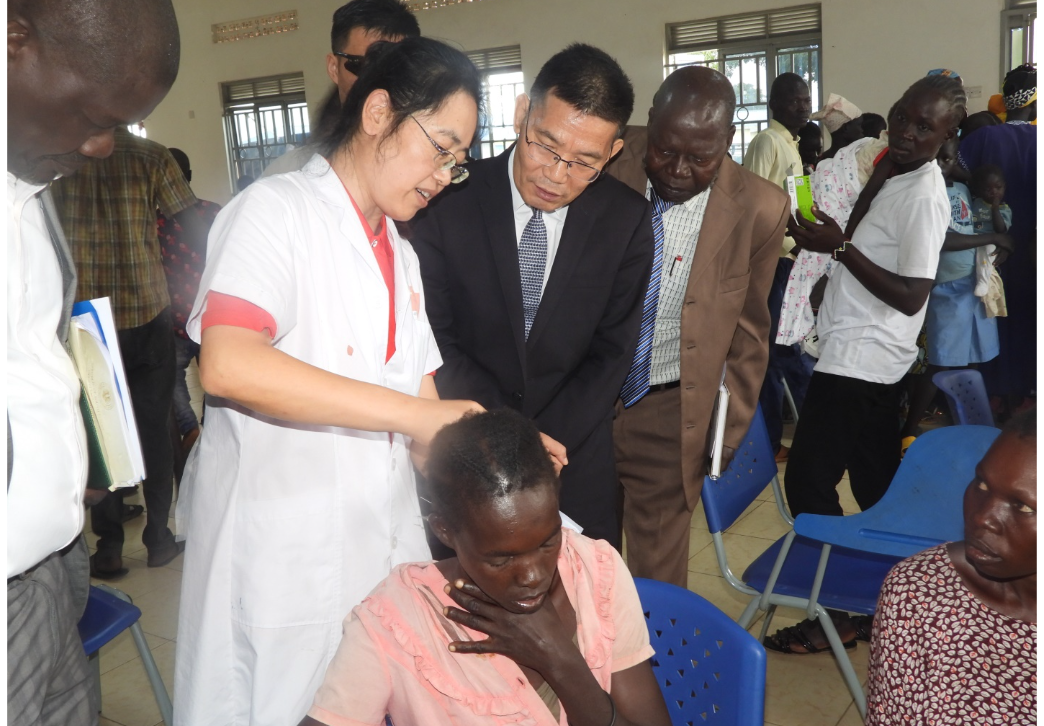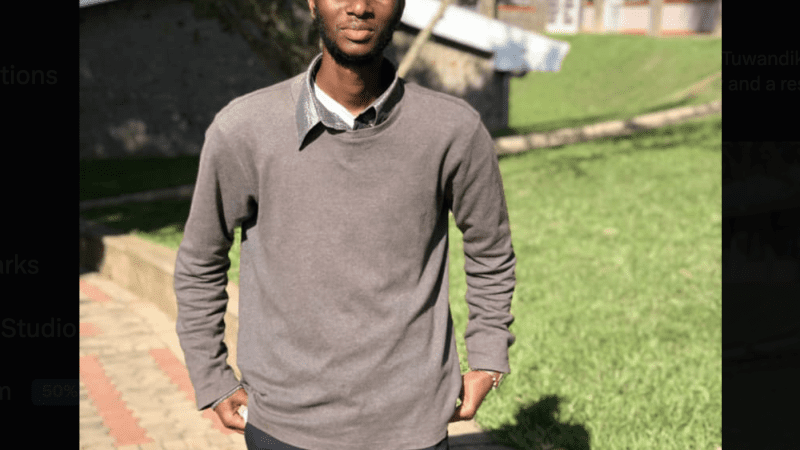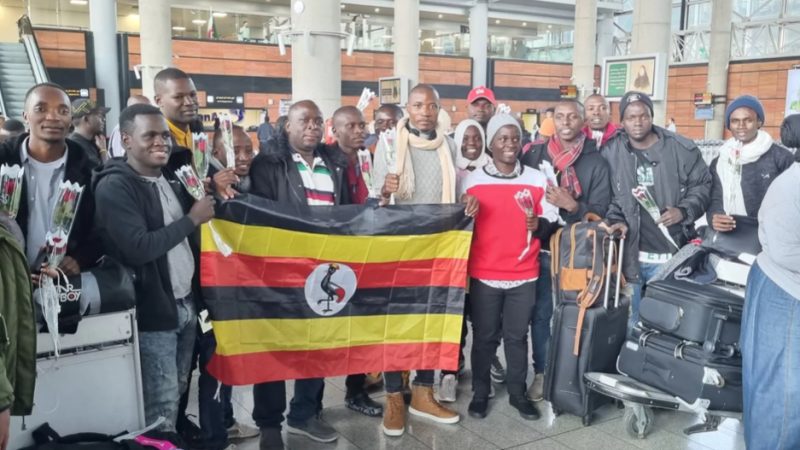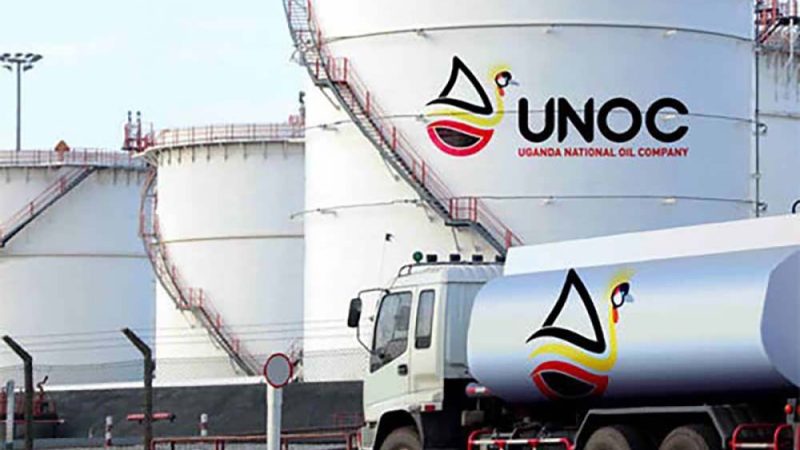Mu Jianjun (2nd R), the Economic and Commercial Affairs Counsellor of the Chinese embassy and other officials monitor a traditional Chinese medicine doctor treat a patient on Friday July 26, 2024 in Lobonok payam of Central Equatoria State.
Lobonok payam in Central Equatoria State has over the years since 2017 been a risky place to visit despite being located 38 kilometers from Juba, the capital of South Sudan.
The eleventh batch of China medical team demonstrated immense bravery and risks on Friday to navigate the dirt road filled with pot holes to offer free medical services in Yapa boma.
The two-day medical camp which lasted until July 27, benefited hundreds of patients who turned up with ailments such as malaria, diabetics and rheumatism especially among the elderly.
Ladu Santos, a resident of neighboring Tombur boma, said he had tested positive for malaria prior to the visit of the Chinese medical team, but he could not find proper treatment because anti malaria medicines had run out of stock at the only primary health care center in Yapa boma.
“I am very happy for the China medical team for visiting our payam, our payam lacks a lot of things most especially the medical equipment,” Santos told The Juba Echo in an interview last week.
The China medical team did not only provide free treatment to thousands of people but also donated medical equipment including medicines, food and non-food items to Lobonok primary health care center.
Christine Laurence Lado, who arrived in Lobonok payam to attend a funeral, said that upon realizing the presence of Chinese doctors, she rushed to the scene of the medical camp to get treatment for Allergic rhinitis.
“We came here for the funeral but we found doctors giving free treatment and that is good for the people in this area, old women are sick and they cannot afford treatment, this place needs a hospital because the people are staying far away from Juba,” Lado said.
Lado said she had sought medication from several doctors for her allergic rhinitis but the condition persisted until she met the Chinese medical team.
She disclosed that she was amazed by the different specialization within the Chinese medical team.
James Ukung, who had been suffering from persistent joint and waist pain, was among several elderly patients treated using Traditional Chinese Medicine (TCM).
“I had serious problem in my legs and part of my body and that is why I was brought here, I was reeling in pain but upon seeing the traditional Chinese medicine doctors I have got treatment and the body pain has reduced,” Ukung said.
Flora Keji Santo, a resident of Yapa boma said the visit by the Chinese medical team has save many lives, adding that the medical team should consider returning to Lobonok payam for another round of treatment.
Keji is among several patients who turned up with rheumatism disease which affects joints tendons, ligaments, bones, and muscles.
“I have been suffering from rheumatism and I also have back pain, but now I have got treatment, the pain has reduced,” she said.
Isaac Loki, medical director of Lobonok payam primary health care center, said the health facility that serves more than 15,000 people from the neighboring bomas is understaffed and also lacks enough medical supplies and equipment.
Loki noted that the situation has been exacerbated since June 2024, when the government and donors announced the closing of the multi-million donor funded health pooled fund.
“We are now six months without medical supplies at the moment, we lack tests even the basic malaria rapid diagnostic tests (RDTs) are no longer available, and injectable medication like Artemether and metro infusion,” Loki said
“The lifesaving medicine is actually over so I am so much grateful for the China medical team for supporting us and we hope that this should not be the end,” he added.
Metro infusion helps prevent an infection after surgery. It is also used in the treatment of dental infections, leg ulcers, and pressure sores.
Chen Si, team leader of the 11th batch of China medical team, said they were fully prepared for this medical camp in Lobonok payam, adding that they did not only offer medical treatment to the local population but also donated rice, maize flour, cooking oil , washing soap and sugar.
“We spent three hours to come to Lobonok to conduct this medical camp, and we spent two days providing consultations and medical treatment to the people of Lobonok. I believe with this medical camp, we have contributed toward improvement of the health wellbeing of the people of Lobonok,” Chen said.


